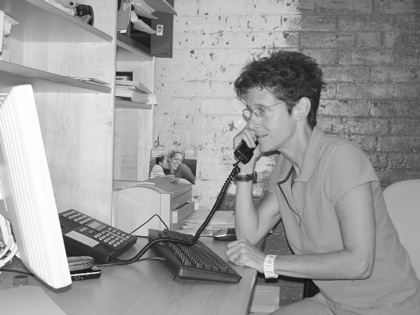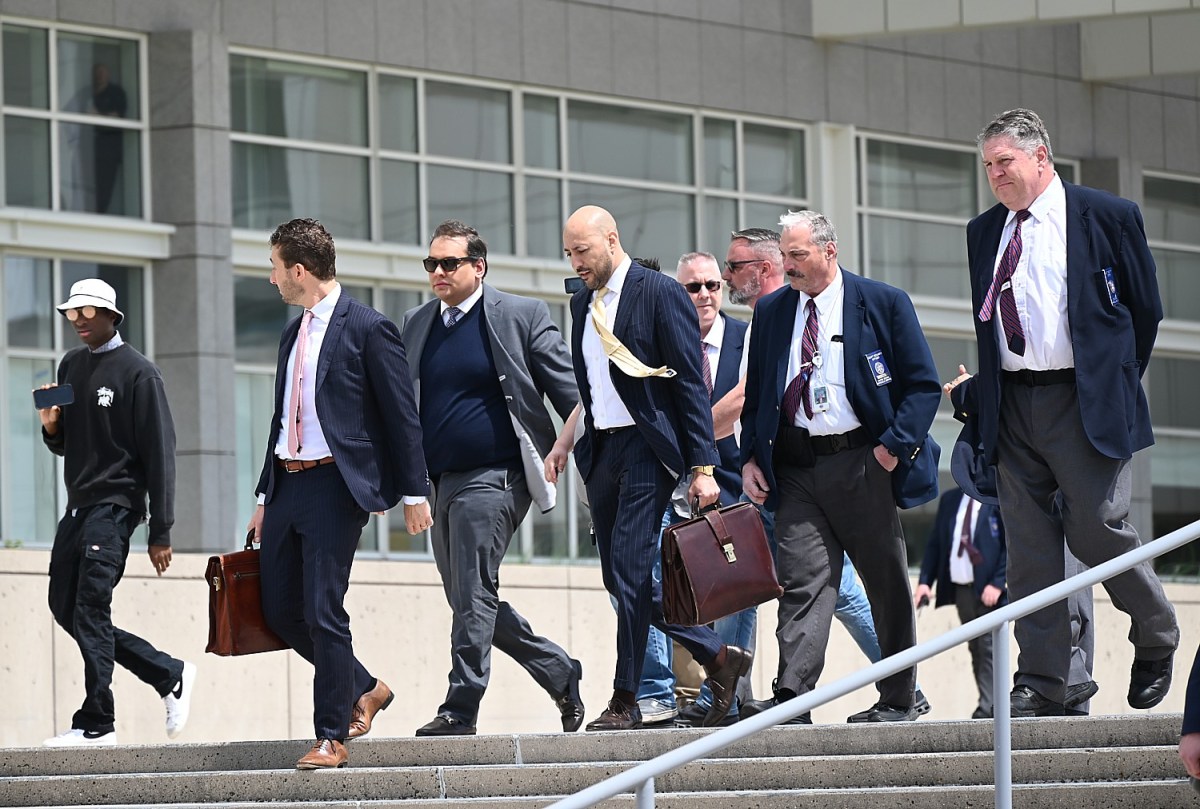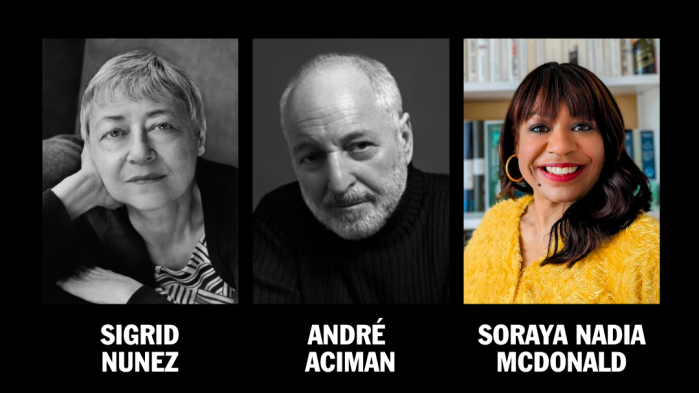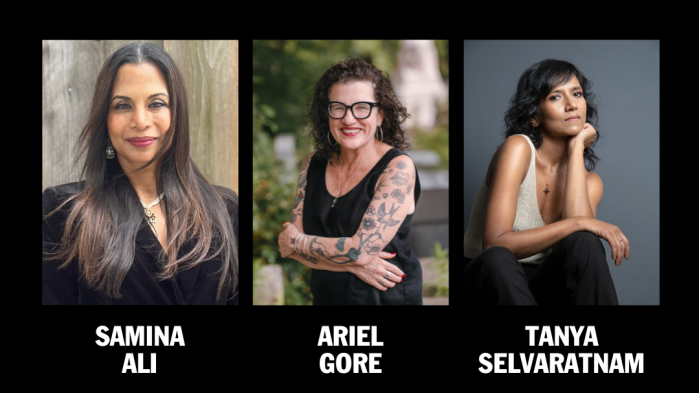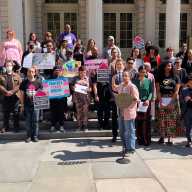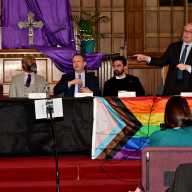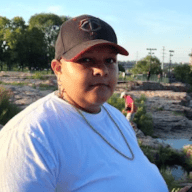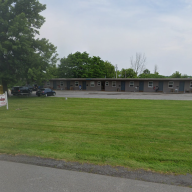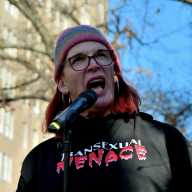Community Center launches first effort for gay, bi, trans women facing too-common problem
A grant from the Susan G. Komen Breast Cancer Foundation has allowed the LGBT Community Center to hire Liz Margolies, a licensed clinical social worker, to head up a group serving lesbian, bisexual and transgendered women living with cancer.
“New York, first in so many ways, has not been first in this area,” observed Liz Margolies, coordinator of the Lesbian, Gay, Bisexual and Transgender Community Center’s recently instituted program, the Lesbian Cancer Initiative.
As the only program in New York City geared specifically toward lesbian, bisexual and transgendered (LBT) women struggling with the physical and emotional effects of cancer, the Lesbian Cancer Initiative targets a grossly underserved population that other cities, such as Atlanta and Chicago, have already been serving for more than a decade.
Although the Community Center has offered some programming, paid for out of its general fund, for LBT women with cancer over the past two years, a grant from the Greater New York affiliate of the Susan G. Komen Breast Cancer Foundation was awarded in April of this year, allowing the Center to hire Margolies, a licensed clinical social worker, on a part-time basis. This makes Margolies the first and only paid staff member currently working with LBT cancer survivors in New York City in this capacity.
“The Lesbian Cancer Initiative is the only [program] that is looking at LBT women specifically,” Margolies asserted. Although many institutions in New York City offer comprehensive support services for cancer patients and survivors, there are no other programs focused explicitly on the unique experiences and needs of the LBT population.
There is virtually no national health data available regarding LBT women, though it is widely accepted that such women are at greater risk for developing many types of cancer. LBT women are more likely to consume alcohol than straight women, more than twice as likely to smoke cigarettes, and they have a higher overall incidence of obesity. LBT women may also be more susceptible to ovarian and endometrial cancers, since they are less likely to have ever taken oral contraceptives and more likely to postpone or refrain from childbirth altogether. Also significant is the fact that LBT women are less likely to have health insurance or to be screened for cancer on a regular basis.
“Lesbians are getting fewer mammograms, fewer pelvic exams, and fewer pap smears,” Margolies explained.
“There’s a misconception, even among some medical [professionals], that if women are not having sex with men they don’t have to worry about STDs, they don’t have to worry about cervical cancer… but the Human Papilloma Virus can be passed between women, and HPV is a risk factor for cervical cancer,” she emphasized.
Margolies acknowledged that there is even less data available about the experience of transgendered women with cancer.
“Their experience with the medical profession is even more difficult and makes them even less likely to get screened and as little information as we have about lesbian and bisexual women with cancer, we know so much less about trans people with cancer and the effects of hormones, etc.,” she said.
Reflecting on the reasons for the higher rates of obesity and alcohol and tobacco use among LBT women, Margolies argued that they are directly related to the continuing prevalence of homophobia in the United States.
“These are all lifestyle issues and I think [they’re] a result of living in a homophobic culture and the stresses of that,” she said.
Add to these everyday stresses a possible fear of coming out to one’s health care provider, discrimination and insensitivity within the medical profession toward one’s lifestyle or family, and significantly distinct issues regarding sex and body image while dealing with cancer, and it soon becomes clear why a program such as the Lesbian Cancer Initiative is so crucial.
Michele Forsten, a breast cancer survivor who underwent a double mastectomy in 2002 and is currently disease-free, has written extensively about her personal experience as a lesbian seeking cancer support services in New York City.
“I wanted to find a support group after the surgeries and I couldn’t find one specifically for lesbians,” Forsten recalled. Although she tried attending other support groups, such as Self-Help for Women with Breast or Ovarian Cancer (SHARE), she found the dynamics in such groups troubling.
“[At SHARE], I felt like I had to educate them [about my sexuality] when I was supposed to be the one getting services,” Forsten said. Feeling like the only lesbian in the world coping with cancer, Forsten went on eventually to co-found the New York City Lesbian Cancer Support Consortium, which seeks to create a dialogue between mainstream and LBT health providers, as well as to provide referrals and other resources. Margolies currently serves as co-chair of the group.
Forsten compared the isolation she often felt as a lesbian cancer survivor to being silent about her sexual orientation years ago.
“It remind[ed] me of the ‘70s and being in the closet at work,” she said. “You can feel like you’re in the closet all over again.”
Forsten also pointed out that, while she has “high hopes” for the Lesbian Cancer Initiative, “there is still not at this moment, a support group for lesbians with cancer [in New York City].”
The Initiative currently offers free one-on-one counseling, information, and referral services, but there has not yet been enough demand for a support group.
“If we have enough people, we’ll certainly set up a support group,” said Margolies, who has been focusing thus far on simply trying to get the word out about the Initiative.
“A lot of what I’ve been doing for the first few months has been going around the city and telling everybody about the program and that the services are all free, the counseling is absolutely free—everything is,” she explained.
And so far, her efforts have elicited both unexpected and rewarding results.
“The response I’ve had has been surprisingly positive,” Margolies said. “I thought people would be much more likely to say either, ‘We don’t have any lesbians here,’ or, ‘We take care of everybody fine.’ Instead I’ve been met with, ‘Thank God you’re here. Where have you been? Tell us what we need to know.’”
Margolies indicated that she has even been approached on several occasions with concrete ideas for making LBT cancer patients feel more comfortable.
“At the end of my presentation [some doctors have] said, ‘Do you have little rainbow pins, we want to put them on our lab coats.’”
Although there is not currently enough money in the program’s very small budget to purchase such pins, Margolies is hoping a generous member of the community might donate some to the Initiative.
With the New York City medical community so willing to cooperate, the continuing lack of outreach to this population can be difficult to understand.
“I think the larger problem is the invisibility of LBT people in the cancer world,” maintained Margolies. “I don’t think these places even know how many of us they’re treating. [LBT women] with cancer need to be more vocal and start demanding that they get better treatment and that their needs be met… It’s just like every other battle we’ve had to fight.”
In an effort to bring LBT cancer survivors together, Margolies has planned several upcoming events for the Lesbian Cancer Initiative, such as “Cancer in the Family: an uninvited guest,” which will take place on October 15 from 10 a.m. to noon at the Center, and the Cancer, Health and Pleasure Fair, which will be held on December 5 from 6 to 8 p.m.
“I really want the Lesbian Cancer Initiative to be the Ellis Island [for LBT women dealing with cancer],” said Margolies. “If you’re [an LBT woman] and you are diagnosed with cancer, I want your first stop to be the Lesbian Cancer Initiative and we will arm you with information, help put you in touch with sensitive people, and offer counseling to help adjust to the whole experience of becoming a cancer survivor.”
Forsten, who knows all too well how vital these services can be, is encouraged by Margolies’ energy and feels hopeful about the future for LBT women living with cancer in New York City.
“I hope that New York City can become a leader in this area so that no more lesbian patients will have to feel alone,” she said.
According to the American Cancer Society website, about one in every three women will develop cancer in her lifetime.
For more information about The Lesbian Cancer Initiative, visit gaycenter.org or call 212-620-7310, ext. 258. The Initiative will hold a community screening at the Community Center, 208 W. 13th St. at 7 p.m. On Aug. 25 at 10 p.m., channel 34’s “Out at the Center” will present a program on the Initiative. Send donations of rainbow pins for use by lesbian-friendly medical professionals to the Lesbian Cancer Initiative, LGBT Community Center, 208 W. 13th St., NYC 10011.
gaycitynews.com

